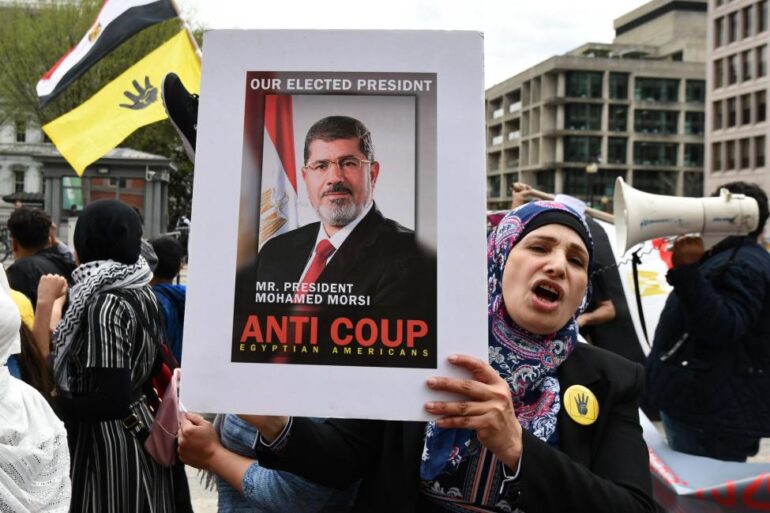Former Egyptian President Mohammed Morsi was quietly buried on Tuesday, a day after suddenly dying in a Cairo courtroom.
Egypt’s public prosecutor said the 67-year-old former president collapsed in the defendant’s cage and was pronounced dead at the hospital at 4:50pm on Monday.
The only democratically-elected leader in Egypt’s history, Morsi led the Muslim Brotherhood affiliated Freedom and Justice party that took power in the 2012 elections after the Arab Spring protests ended American-backed Hosni Mubarak’s three decade rule over the country.
But Morsi’s vision undermined Washington’s regional interests and United States President Barack Obama quickly responded by orchestrating a 2013 coup d’état in collaboration with Egypt’s military elite that brought the army back to power under Abdel Fattah el-Sisi’s leadership.
Morsi had been jailed by the el-Sisi regime ever since, suffering from a series of health issues and medical neglect, compounded by the poor conditions in prison.
There have been various reports over the years that the former president had been tortured in prison, with human rights activists saying that his death should be viewed within the context of the regime’s systematic mistreatment of political detainees.
Human Rights Watch called the news of Morsi’s death “entirely predictable,” citing the government’s “failure to allow him adequate medical care.”
“The government of Egypt today bears responsibility for his death, given their failure to provide him with adequate medical care or basic prisoner rights,” HRW said in a statement.
Morsi served just one year of a four-year term, while his Freedom and Justice party has since been outlawed.
The former president was facing at least six trials, had been behind bars for nearly six years and was serving a 20-year prison sentence for a conviction that arose from the killing of protesters during 2012 demonstrations.
He had also been serving a life sentence for espionage in a case related to the Gulf state of Qatar.
His supporters continue to maintain that the charges against him were politically motivated.
In 2016, the Court of Cassation ordered a retrial and scrapped the life imprisonment sentence for Morsi and other defendants, including some who had already been executed after receiving the death penalty in the same case.
Throughout the entire time of his imprisonment, Morsi leader spent most of his time in solitary confinement and was only allowed three visits from his family.





